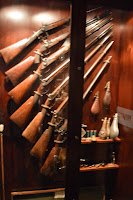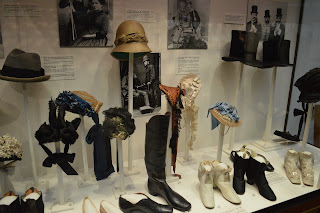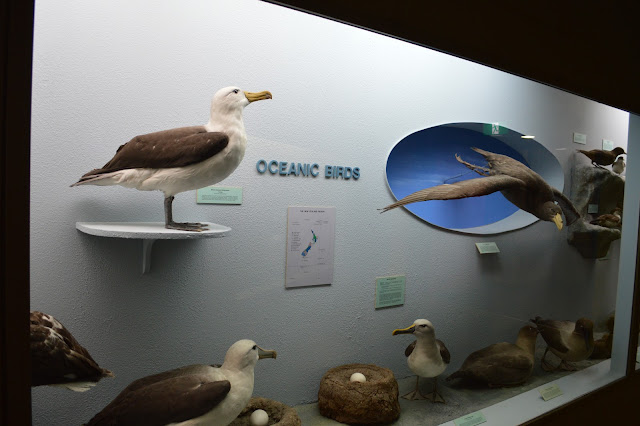For context: I had two open heart surgeries within 24 hours. The first was to repair (unsuccessfully) my mitral valve or replace it with a tissue valve (successful) If only that was the end of that stage.
My second was an emergency later that day due to a blood clot and uncontrolled bleeding from the sac (pericardium) surrounding my heart. It was touch and go. That means twice my chest was opened, ribs spread, heart stopped while on the bypass machine and heavy anaesthesia, chest wired up. I spent 4 days in ICU instead of one and remember nothing from that time. Having to go through this brutal surgery twice really set me back. Once on the ward things started to get interesting.
Hallucinations
This can be as a result of the anaesthesia and heavy duty medicines. I thought I had pustules growing around and up my neck on the right side. I could certainly feel them - scabby mushrooms? So I started trying to pick them off. I had no mirror so I couldn't see anything. It amounted to self-mutilation under 'the influence'. The scabby bits, I worked out a couple of weeks later, were all the sticky residues from the ECG electrodes. I still have the scars from clawing at myself.
Even weirder was the bat. On a number of occasions I watched a tiny NZ bat swooping ever so swiftly around the ward. I could barely keep up with it but I suspect I saw it with my eyes closed. When I mentioned the bat to the nurses, they pointed out the windows didn't open so there was no way a bat could enter. Hmmm! Hallucinations, nightmares and delusions are common in hospital and can continue at home. Someone said they could see Turkish dancing girls in their room, another had an Aladdin experience on a magic carpet. I blame the betablocker I am on for nightmares at home while not asleep.
Lizard
When I got home and had a close look at myself in the bathroom I was shocked by the state I was in. Muscle-wasting was extreme after three weeks confined to bed. My body looked 20 years older. The skin on my chest was peeling in sheets. Why? Apparently hair, skin and nails are the lowest priority for the body when in major repair mode. Too sore to touch, I left it to sort itself out.
The incision
This came as no surprise but it was still a bit hard to take that it was permanently a feature of ME and not someone else. You cannot know in advance what your 'zipper' will be like. You have to accept this less attractive addition to your physionomy, however it ends up, as the price for staying alive. It seemed to be healing up fairly well but often with women there is a large 'pouch at the top'. Someone said it was tissue pulled there to start the stitching process as on many of us there is mostly skin and bone and not enough to attach to. I don't know if that is true. This was never discussed by doctors in advance. Mine is still there at two months. It is supremely painful at all times, tender and hates anything touching it, like clothing, but needs protecting from sun. I understand that over time it will flatten out. I sure hope so. The rest of my chest is super-sensitive or numb. Muscles, nerves and ligaments have been cut so they need to grow back but this doesn't always happen in an organised way, not like when they originally developed in the womb.
I am happy that my sternum seems stable. Some folks feel it move and pop despite the stainless steel wires holding things together. Along with the main vertical incision, I have four other 'holes' in my torso. There are two rather unsightly ones below the main incision that were used to drain my chest. There is another on my right side on my ribs where another drain was in for my lungs. On the left is a smaller wound where a second lung drain had to go in later to drain fluid accumulating on my left lung (pleural effusion). The local anaesthetic for that incision was very painful. I am currently experimenting with my home-grown aloe vera leaves - smearing the inside gel on semi-healed areas to see if that aids skin healing. Note, healed does not mean without scarring.
The fridge
In the early days you really need to be mindful of what you are doing every second. Case in point: I tried to open the fridge door but the fridge had migrated to the left and I couldn't get my hand down the side to pull it open so I did what I would normally do. I endeavoured to pull the entire fridge to the right with my left fingers. Yep, just for a nanosecond I forgot I had had OHS but I was reminded VERY painfully immediately afterwards and every day since. I definitely put my left side chest on the healing back foot with that instant of carelessness. I am hoping it will eventually heal but my left pectoral and sternum are still very angry every second of the day and night. In fact sternal pain per se is rather worrying at present so I am looking forward to discussing this at my next checkup at the hospital. i do hope I haven't stuffed myself up.
Damaged vocal chords
Being inturbated in ICU for four days instead of one has had a distressing effect on my singing voice. It is currently munted. If I can weakly find the note, I can't hold it, it cuts out and only silence is left. There is no power or volume control and certainly no tone, just sounds like cotton wool. No control at all, though if I push hard I can get the right note. I will have to be patient and seek advice maybe from a vocal coach as I need to be able to sing as before.
Exercise
This is a biggie. There was so much weakness from being confined to bed I found I could not get onto the ground or get up. Walking down the hallway was shaky, everything physical was difficult. The only solution is to keep moving. Walking is the number one method to gently get better. Despite the nausea and dizziness I made sure I went for a short walk most days, accompanied in case I fell over. Be careful reaching and bending in the first weeks but eventually you need to test what you can do and do it, gradually introducing small tasks. I simply don't know my limits until I reach them.
Problems with medications
This one is massive and the bane of my life. I came home with a pharmacy which I had to swallow for breakfast and through the day. They are powerful drugs and they don't like hanging out together. They made me very ill and set back my healing process. More on that further down.
Ineffective home help
I was visited by an organisation designed to help folks like me in the community, especially those of us who live alone. It is free but limited. Someone would arrive once a day Monday to Friday to help with exercise. The first two days consisted of doing little exercises (such as lifting my leg) standing at my kitchen island. This was not challenging, rather it was boring. I told them I needed to walk so from then on, weather permitting, I would go for a 15 minute accompanied walk. It wasn't easy but each couple of days I would try to extend it by the space of a few houses. Some of the walkers were happy to take 'shortcuts' and bugger off asap.
Meal prep assistance consisted of a total of 20 mins cutting vegetables. There was no cooking. I found myself getting stressed trying to work out what the person could do that would actually help, what sort of meal should be done? I still had to cook it. When I suggested to one helper that they harvest strawberries and raspberrries they had no idea what a strawberry plant with strawberries on it looked like. They had no concept of a salad spinner or how to chop spring onions. I decided that cutting potatoes in half into a steamer wasn't really helping me much. I eventually told the organisation not to bother. They were too inflexible; would not reduce the days but increase the time allowance for me. If I had any appetite at all I would try to eat healthy stuff but meat was often too heavy and I would resort to the easiest thing I could find - crisps and homegrown fruit, yoghurt. Severe nausea and lack of appetite is common.
I would have preferred a nurse to visit several times a week to check my vitals and reassure me. Instead I regularly had to pay to see a general practitioner to even have my blood pressure checked. Over the course of nearly 5 weeks at home I only had a nurse check me three times on a home visit. He was very good though.
Despite three weeks post op in hospital followed by almost 3 weeks at home, I found I wasn't feeling much better. Pain in my stomach, bowel and chest increased to unbearable levels. In the wee small hours of my 67th birthday I desperately called Healthline to enquire if I should call an ambulance or not. I didn't want to over-react but I was desperate. I found the service inefficient and distressing as the call centre only asked preprepared questions after I had waited a very long time just for my call to be picked up. There was only one nurse on for the entire country. I was in a queue. It was 40 minutes before I got through to the nurse who ended up calling me an ambulance. The Rolleston one was busy in Akaroa so I had to wait for one from Christchurch. The guys were well trained and thorough. The emergency department is spacious (they could cope wth another disaster) but lacks the staffing so even via ambulance there is a lot of waiting, then the covid test, then the IV is inserted. One doctor didn't like the fact I knew about stuff and understood medical terminology but a young cardiologist listened to me and the nurses were kind, even sometimes holding my hand to calm my distress.
After a chest Xray showed my pleural effusion was resolving itself there was uncertainty about what could be causing such pain and nausea. I suggested they investigate the gastrointestinal angle. It was eventually agreed that the mountain of powerful meds was damaging my esophagus, stomach and bowel. A senior cardiologist reduced my med intake by 2/3 but recovery would take time. I stayed in hospital 3.5 days while they trialled things and tried to get my motionless for 8 days bowel to operate. All the nasty stuff failed so in the wee small hours of the final day they resorted to the Fleet enema. That helped a bit. Wish they had done that at the beginning. The senior cardiologist felt I should now be on the mend to cope alone at home but that I would have good days and bad days (so true). "I think you're going to be dangerous," he said as he left. Weeks later I am still trying to imagine that.
Insomnia
This is a huge problem for me, possibly caused by one of my meds blocking my melatonin. Something also interferes with the workings of sleeping pills so begging for those hasn't been a real solution. I don't know what is, as I get no healing sleep and have to handle the chest pain 24/7.
Psychological healing
This is another important aspect ignored by medical perssonnel. I knew that anxiety, depression and PTSD are common for OHS patients but individual attention by 'someone' is needed, especially if you live alone and don't have access to hugs and cuddles in your dark moments. On one very 'dark' evening I had to call a friend. He kindly popped over for a chat. The next day I was feeling better but there are random days when waves of anxiety wash over me for no apparent reason. This recovery period can be quite tortuous. Platitudes by well-meaning folks don't help. Company is needed and a listening ear though I found this rather restricted by covid precautions.
Contributions by friends after my daughter had gone back home
I found this awesome. I have few good friends, having moved around a lot in my life. Through my music I have met some folks who genuinely want to help in practical ways and this has been a bit of a life-saver for me: driving me to appointments, taking me to get my groceries, helping with lawn mowing and gardening and housework, popping over for a jam session, accompanying me on walks around the block, dropping off a meal. These forms of assistance and caring really have helped take some of the huge stress off coping on one's own. I will never forget the help I have received from friends and neighbours and I still need some help as it is early days. It took me a week to adjust emotionally from spending a week at home
with my daughter looking after me. I missed her terribly because she is
the only person with whom I have a close emotional attachment but the
support of friends and neigbours kept me going. At least I now have my driver license back. I have had to learn to accept help but I will always prefer to be independent, of course.
I have a long way to go and things could continue to challenge my fortitude but I really want to get back to the active life I had, without constant pain though (as is currently the case), tending my garden, performing with my bass and making new friends.
In all this journey, it is friends and family who prove they can be counted on that have made such a positive contribution to my healing. Thank you, literally, from the bottom of my heart.





































